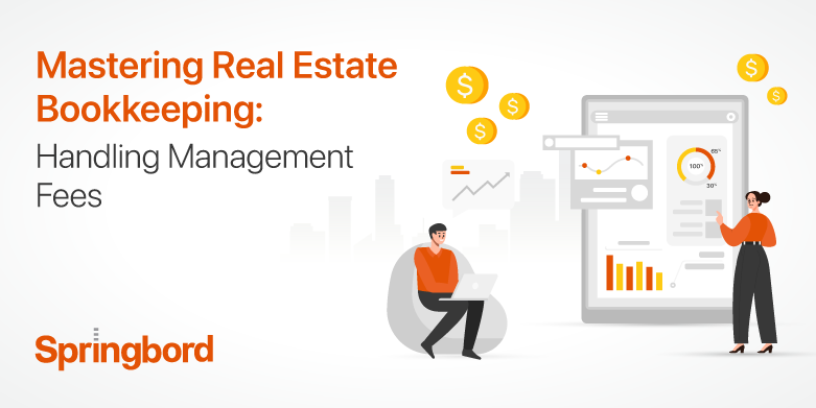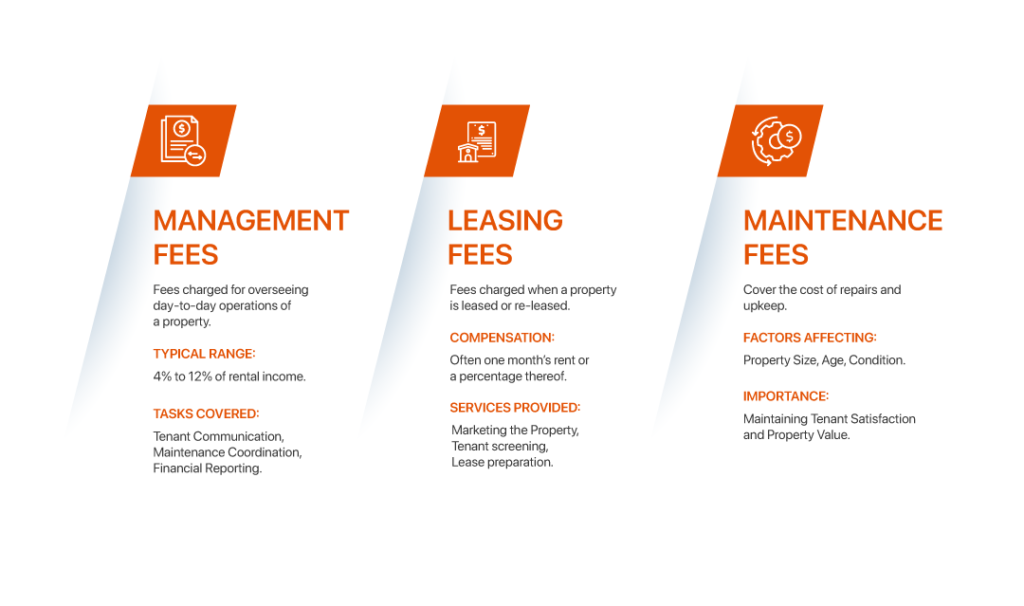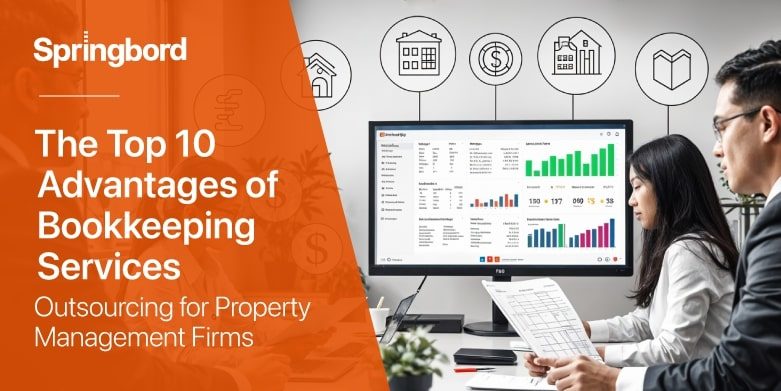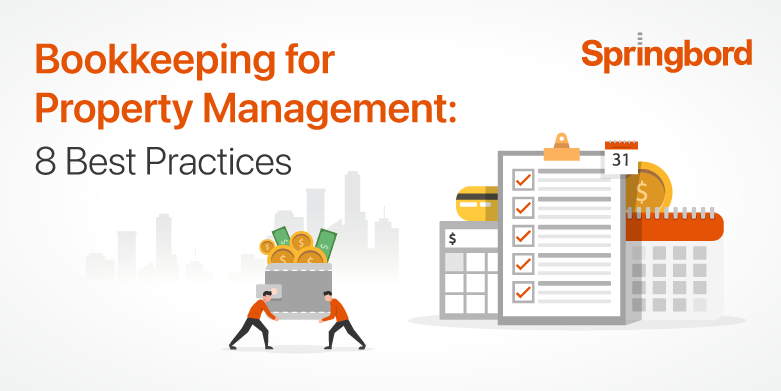 Read time 7 min
Read time 7 minEffective management of property management fees and commissions is an important aspect of financial stewardship for real estate businesses. Precise bookkeeping practices are important in property management, where revenue streams range widely from leasing fees to maintenance charges.
To ensure accurate financial reporting, real estate firms must navigate complex fee structures and adhere to strict accounting standards. This blog delves into the complexities of how real estate firms handle bookkeeping for property management fees and commissions.
From understanding different fee types to managing regulatory compliance and implementing sophisticated technologies, each aspect is important for maintaining financial transparency and operational efficiency.
Overview of Bookkeeping Challenges
The complexities of managing financial transactions for property management fees and commissions are numerous. Real estate firms must contend with diverse fee structures that encompass management fees, leasing fees, and maintenance charges, each requiring meticulous recording and classification.
According to recent industry reports, real estate management fees alone have seen a steady increase, reflecting a strong market demand for property management services.
Importance of Accurate Bookkeeping
Precise bookkeeping is not merely a procedural necessity but a cornerstone of financial transparency and regulatory adherence within the real estate sector.
Inaccuracies or inconsistencies in financial reporting can lead to compliance issues and legal repercussions. According to industry surveys, more than 70% of real estate professionals prioritize accurate financial reporting for operational success.
At Springbord, we offer advanced financial management solutions specifically designed to address the complexities of property management.
Our expert bookkeeping services empower real estate companies to maintain strict financial oversight while enhancing operational efficiency. Let us handle the numbers, so you can focus on what you do best—growing your property investments.
Types of Property Management Fees and Commissions
Combating the complexities of fee structures and commission models is critical in property management for accurate financial reporting.

Comprehending these components promotes informed decision-making and operational efficiency in addition to guaranteeing adherence to accounting standards.
Explanation of Different Fee Structures
Management Fees: These fees are charged for overseeing the day-to-day operations of a property. They typically range from 4% to 12% of the property’s rental income and cover tasks such as tenant communication, maintenance coordination, and financial reporting.
Leasing Fees: Charged when a property is leased or re-leased, these fees compensate the property management company for marketing the property, screening tenants, and preparing lease documents. They often amount to one month’s rent or a percentage thereof.
Maintenance Fees: Cover the cost of repairs and upkeep of the property. These fees can vary widely based on the property’s size, age, and condition, and are crucial for maintaining tenant satisfaction and property value.
Impact on Financial Reporting
Each type of fee within property management has distinct implications for financial statements:
- Income Statement: Management fees and leasing fees contribute directly to revenue, impacting the firm’s profitability and cash flow.
- Balance Sheet: Maintenance fees are often categorized as expenses, affecting the property’s net operating income (NOI) and overall valuation.
- Cash Flow Statement: These fees influence cash inflows and outflows, important in assessing liquidity and financial health.
Accurate recording and classification of these fees are critical not only for compliance with Generally Accepted Accounting Principles (GAAP) but also for providing stakeholders with transparent and reliable financial reporting.
With Springbord, real estate companies can be sure to maintain accurate financial oversight, adhere to legal requirements, and maximize profits by making well-informed decisions.
To inquire more about our services, please reach out to us. We look forward to assisting you!
Accounting Principles and Standards
Following strict accounting guidelines is essential in the property management industry to guarantee compliance and accurate financial reporting.
Property management companies operate within the frameworks of Generally Accepted Accounting Principles (GAAP) and International Financial Reporting Standards (IFRS), each offering distinct guidelines and requirements.
GAAP and IFRS Compliance
Generally Accepted Accounting Principles (GAAP): GAAP is the standard framework for financial accounting and reporting in the United States. Property management firms following GAAP principles adhere to standardized practices for revenue recognition, expense recording, and financial statement presentation.
Over 85% of real estate professionals prioritize GAAP compliance to uphold financial reporting’s credibility and transparency, per recent surveys.
International Financial Reporting Standards (IFRS): The International Accounting Standards Board (IASB) created IFRS, which is used in many nations throughout the world.
Property management firms aligning with IFRS standards follow principles that emphasize a principles-based approach to financial reporting, focusing on substance over form and fair value measurement.
Accrual vs. Cash Basis Accounting

Accrual Accounting: Accrual accounting records revenues and expenses when they are earned or incurred, regardless of when cash transactions occur.
This method provides a more accurate representation of a property management firm’s financial performance over a specific period. Approximately 70% of real estate firms utilize accrual accounting to capture complex revenue streams and ongoing expenses.
Cash Basis Accounting: In contrast, cash basis accounting records transactions only when cash is exchanged.
While simpler, this method may not accurately reflect the true financial position of a property management firm, especially when dealing with long-term leases and deferred revenues.
Property management companies must comprehend and use the proper accounting method to adhere to legal requirements, make wise financial decisions, and increase stakeholder confidence in the accuracy of financial reporting.
Delivering customized financial management solutions that comply with both GAAP and IFRS standards is our area of expertise at Springbord. Our knowledge guarantees that property management companies uphold strict financial controls, comply with legal requirements, and maximize operational effectiveness by utilizing strategic financial insights.
Handling Revenue Recognition
For property management companies to appropriately present their financial performance and adhere to accounting standards, effective revenue recognition is essential. Nevertheless, there are many obstacles to overcome when navigating the nuances of revenue recognition from different property management fees and commissions.
Complexities in Revenue Recognition
Managing the intricacies of revenue recognition necessitates precisely evaluating various fee arrangements and choosing the right moment for financial reporting, all of which are vital for guaranteeing compliance and openness in property management companies.
Diverse Fee Structures: Property management firms encounter diverse fee structures such as management fees, leasing fees, and maintenance charges, each requiring distinct revenue recognition methods. Nearly 60% of property managers say that one of the trickiest parts of financial reporting is revenue recognition, according to industry surveys.
Timing of Revenue Recognition: When it comes to long-term contracts, timing is crucial because revenue may be recognized gradually (using the percentage-of-completion method) or all at once (using the milestone-based method).
Methods for Revenue Recognition
In property management, revenue recognition is accomplished through the use of strategic approaches such as milestone-based recognition and percentage-of-completion methods. These approaches are designed to accurately reflect financial performance over time and guarantee adherence to accounting standards.
Milestone-Based Recognition: This method recognizes revenue when predetermined milestones are achieved, such as signing a lease agreement or completing major maintenance projects. It provides clarity on revenue streams and aligns with performance obligations.
Percentage-of-Completion Method: Commonly used for ongoing property management services, this method recognizes revenue based on the percentage of completion of the service contract. It requires an accurate estimation of project costs and completion stages to reflect revenue accurately.
For property management companies to maintain financial transparency and regulatory compliance, they must comprehend and properly implement these strategies.
At Springbord, our area of expertise is offering sophisticated financial management solutions that help property management companies recognize revenue more quickly. Our customized strategy promotes informed decision-making for long-term business growth, guarantees adherence to industry standards, and improves financial reporting accuracy.
Managing Expenses and Cost Allocation
Property management companies need to allocate costs and track expenses effectively to stay financially transparent and run their businesses effectively. Precise techniques guarantee precise financial documentation and well-informed choices.
Expense Tracking
Efficient expense tracking is essential for property management firms to maintain financial clarity and operational efficiency.
Comprehensive Expense Categories: Expenses in property management encompass a wide range, including maintenance costs, administrative expenses, and property-specific expenditures. Accurate tracking of these costs is essential for budgeting and financial forecasting.
Technological Integration: Real-time tracking of expenses and quick insights into cash flow and spending patterns are made possible by utilizing sophisticated accounting software.
Cost Allocation Methods
Effective cost allocation methods are crucial for property management firms to distribute expenses accurately across various properties and management activities.
Direct Allocation: Directly allocating expenses to particular assets or management tasks under observable use or advantage. This method ensures transparency in cost distribution and facilitates accurate property-level financial analysis.
Activity-Based Costing (ABC): Allocating indirect costs across properties based on the activities that drive these costs, such as maintenance activities or tenant services. ABC enhances cost visibility and supports strategic resource allocation.

Property management companies must comprehend and put into practice efficient methods for tracking expenses and allocating costs to maximize resource use, improve financial accountability, and foster sustainable growth plans.
Specialized in offering customized financial management solutions, Springbord incorporates cutting-edge expense tracking systems and sophisticated cost allocation techniques. With our experience, property management companies can attain operational excellence by allocating resources strategically and maintaining accurate financial oversight.
Conclusion
Accurate financial reporting, strict adherence to accounting standards, and strategic decision-making are necessary to successfully navigate the complexities of property management fees and commissions.
We at Springbord are experts in offering customized financial management solutions that give real estate companies optimal operational efficiency, compliance with GAAP and IFRS, and accurate bookkeeping procedures.
Ready to streamline your property management financial operations?
Partner with Springbord to enhance your financial oversight, ensure regulatory compliance, and leverage advanced technologies for sustainable growth in property management.
FAQs
1. What are the main types of property management fees?
The main fees include management fees (4–12% of rental income), leasing fees (often one month’s rent), and maintenance fees (based on property condition and scope of work).
2. Which accounting method is best for property management bookkeeping?
Accrual accounting is preferred by most real estate firms as it provides a clearer picture of financial performance over time.
3. Why is revenue recognition important in property management?
It ensures income is reported accurately and in compliance with accounting standards like GAAP or IFRS.
4. How can I ensure my real estate bookkeeping is accurate?
Use specialized software, follow GAAP or IFRS standards, and consider outsourcing to experienced bookkeeping professionals.
5. What’s the difference between bookkeeping and accounting in real estate?
Bookkeeping tracks daily transactions, while accounting involves analyzing and reporting financial data for strategic decisions.
6. Can I do property management bookkeeping myself?
You can, but due to complex fee structures and compliance requirements, many firms prefer to outsource to experts.
7. What tools are used for real estate bookkeeping?
Popular tools include QuickBooks, Buildium, AppFolio, and custom solutions tailored to real estate management.







